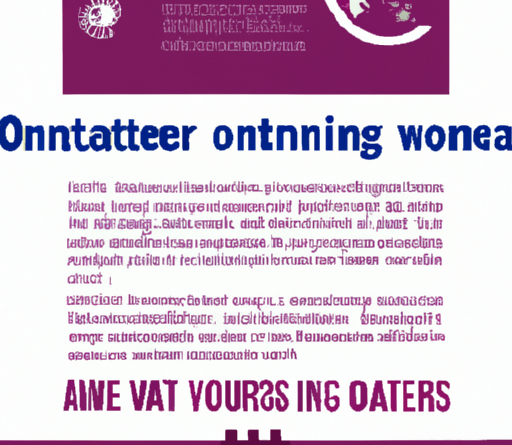
Are you looking to take your sports performance to the next level? Look no further! In this article, we will explore the world of Provocative Change Works by Nick Kemp and how it can enhance your performance in sports. Whether you’re a seasoned athlete or just starting out, sports performance coaching with Provocative Change Works offers innovative techniques that will help you unlock your full potential. Get ready to discover the secrets to maximizing your athletic abilities and reaching new heights in your favorite sport. So, let’s dive in and explore the world of Provocative Change Works for enhancing sports performance!

Table of Contents
Understanding Provocative Change Works
What is Provocative Change Works?
Provocative Change Works (PCW) is a unique approach to sports performance coaching that combines elements of humor, playfulness, and provocation to create profound shifts in mindset and behavior. Developed by Nick Kemp, PCW incorporates techniques from various fields, including neuro-linguistic programming (NLP), hypnosis, and psychology. It aims to disrupt old patterns of thinking and challenge limiting beliefs, allowing athletes to unlock their full potential and achieve peak performance.
How does it differ from traditional sports coaching?
Unlike traditional sports coaching, which focuses on technique, strategy, and physical conditioning, PCW delves deeper into the athlete’s mindset, beliefs, and emotions. While traditional coaching methods can be effective, PCW recognizes the integral role that the mind plays in sports performance. By addressing the underlying psychological and emotional factors that may hinder performance, PCW takes a holistic approach to improving athletic performance.
The principles behind Provocative Change Works
At its core, PCW operates on the belief that change is most effective when it is done in a playful, light-hearted, and slightly provocative manner. This approach allows athletes to step outside their comfort zones and explore new possibilities. By introducing humor and playful challenges, PCW aims to disrupt old patterns of thinking, create new neural connections, and open doors to enhanced performance. The principles of PCW can be applied to various aspects of an athlete’s life, including training, competition, and personal growth.
Benefits of Using Provocative Change Works for Sports Performance
Enhanced mindset and mental performance
One of the key benefits of using PCW for sports performance is the development of an enhanced mindset. Through the use of provocative techniques, athletes are encouraged to challenge their existing beliefs, perceptions, and limitations. This process helps them develop a more positive and resilient mindset, enabling them to overcome obstacles and perform at their best, even under high-pressure situations.
Improved focus and concentration
PCW techniques can significantly improve an athlete’s focus and concentration. By addressing and eliminating distractions, athletes can develop a heightened state of awareness and achieve a state of flow. The playful and provocative nature of PCW allows athletes to let go of negative thoughts, doubts, and fears, leading to greater mental clarity and improved performance.
Increased motivation and drive
Motivation is a fundamental factor in sports performance, and PCW can help athletes boost their motivation and drive. Through the use of provocation and humor, PCW coaches can tap into an athlete’s intrinsic motivation and ignite a passion for success. By challenging limiting beliefs, athletes can break through barriers, unlock their full potential, and achieve greater levels of success.
Greater resilience and adaptability
Resilience and adaptability are vital attributes for athletes, especially in the face of setbacks and challenges. PCW helps athletes develop resilience by exposing them to playful challenges that force them to adapt and innovate. By embracing spontaneity and flexibility, athletes can become better equipped to handle unexpected situations and bounce back stronger than ever.
Enhanced self-belief and confidence
Self-belief and confidence are essential to achieving peak performance. PCW techniques create an environment that fosters self-belief by challenging athletes to go beyond their limitations. Through playful and provocative interactions, PCW coaches help athletes recognize their strengths, overcome self-doubt, and build unshakable confidence in their abilities.
Implementing Provocative Change Works Techniques in Sports Training
Understanding the athlete’s unique mindset and beliefs
Before implementing PCW techniques in sports training, it is crucial for coaches to gain a deep understanding of each athlete’s unique mindset and beliefs. This can be achieved through open and honest communication, active listening, and building rapport. By understanding an athlete’s thought patterns, fears, and goals, coaches can tailor the PCW approach to meet their specific needs.
Identifying limiting beliefs and breaking through barriers
Limiting beliefs are often the biggest obstacles to an athlete’s success. PCW coaches excel at identifying these limiting beliefs and working directly with athletes to break through them. Through playful challenges and provocative conversations, coaches help athletes challenge their assumptions, question their limitations, and create new empowering beliefs that support improved performance.
Utilizing humor and playfulness in training sessions
Humor and playfulness are integral components of PCW training sessions. Coaches use humor to create a relaxed and enjoyable environment where athletes can let their guard down and explore new possibilities. Playfulness encourages athletes to approach challenges with a sense of curiosity and lightheartedness, promoting an optimal state of learning and growth.
Using provocation to challenge and stimulate growth
Provocation is a key element of PCW. Coaches use carefully crafted provocations to challenge athletes’ existing patterns of thinking and behavior. By provoking response and surprising athletes, coaches can disrupt old habits and encourage new perspectives and insights. These provocations stimulate growth and allow athletes to find unique solutions to problems and challenges.
Creating new patterns of thinking and behavior
The ultimate goal of PCW is to create new patterns of thinking and behavior that support enhanced sports performance. Through consistent practice and reinforcement, athletes can integrate these new patterns into their daily lives and training routines. Coaches guide athletes in developing new habits, rituals, and mental frameworks that align with their goals, ultimately leading to improved performance.
Case Studies: Successful Applications of Provocative Change Works in Sports
Elevating performance in professional athletes
PCW has been successfully used to elevate the performance of professional athletes across various sports. By addressing psychological barriers, enhancing mindset, and fostering self-belief, PCW helps athletes tap into their highest potential. Professional athletes who have undergone PCW coaching have experienced improved performance, increased resilience, and a renewed passion for their sport.
Helping athletes overcome performance anxiety
Performance anxiety can be a significant hindrance for athletes, regardless of their skill level. PCW provides coaching techniques designed to help athletes manage and overcome performance anxiety. Through a combination of humor, provocation, and reframing techniques, PCW coaches guide athletes in transforming anxiety into excitement and channeling nervous energy into optimal performance.
Breaking through mental blocks and performance plateaus
Mental blocks and performance plateaus can be frustrating for athletes who strive for continuous improvement. PCW offers effective tools for breaking through these barriers and reaching new levels of performance. By challenging negative self-talk, identifying underlying beliefs, and introducing playful provocations, PCW coaches empower athletes to break free from mental limitations and achieve breakthrough performances.
Transforming team dynamics and collaboration
Team dynamics and collaboration play a crucial role in team sports. PCW techniques can foster stronger bonds, trust, and effective communication among team members. Coaches use humor, role-playing, and group provocations to create a playful and supportive environment. This approach fosters deeper connections and enhances team cohesion, leading to improved overall performance.
Improving performance in high-pressure situations
High-pressure situations, such as important matches or competitions, can often lead to decreased performance due to heightened stress and anxiety. PCW equips athletes with the tools and techniques to remain calm, focused, and perform at their best under pressure. Through a combination of humor, visualization exercises, and reframing techniques, athletes can maintain composure and execute their skills with confidence.

Training and Certification in Provocative Change Works for Sports Coaches
Finding reputable training programs and courses
To become a PCW Sports Performance Coach, it is essential to find reputable training programs and courses. Conduct thorough research and seek recommendations from experienced coaches in the field. Look for training providers that offer comprehensive programs, taught by knowledgeable instructors who have practical experience in both PCW and sports coaching.
Learning the key techniques and principles
PCW training programs cover the key techniques and principles needed for effective sports performance coaching. These include understanding the mindset and beliefs of athletes, mastering provocation techniques, utilizing humor and playfulness, and creating new patterns of thinking and behavior. It is important to choose a program that provides a thorough understanding of these core elements.
Gaining practical experience through supervised coaching
Practical experience is essential for becoming a proficient PCW Sports Performance Coach. Seek opportunities to work with athletes under the supervision of experienced coaches. This allows you to apply your knowledge and skills in real-world scenarios, receive feedback, and fine-tune your coaching approach. Practical experience helps develop confidence, refine techniques, and solidify your understanding of PCW principles.
Obtaining certification as a Provocative Change Works Sports Performance Coach
After completing the necessary training and gaining practical experience, it is recommended to obtain certification as a PCW Sports Performance Coach. Certification provides credibility and demonstrates your expertise in using PCW techniques to enhance sports performance. Look for certification programs that are recognized and respected within the coaching community.
Challenges and Considerations in Using Provocative Change Works for Sports Performance
Resistance and skepticism from athletes
One potential challenge in using PCW for sports performance is encountering resistance and skepticism from athletes. The playful and provocative nature of PCW may initially be met with caution or suspicion. Coaches must address these concerns by explaining the principles and benefits of PCW in a transparent and reassuring manner. Building trust and rapport is crucial in overcoming resistance and gaining athletes’ buy-in.
Balancing humor and seriousness in coaching
While humor and playfulness are central to PCW coaching, coaches must also strike a balance with seriousness and professionalism. It is important to create an environment where athletes feel safe, respected, and supported. Coaches should gauge the individual and cultural sensitivities of athletes to ensure that humor is used appropriately and does not undermine the coaching process.
Adapting the approach to different sports and athletes
Each sport and athlete is unique, and it is important for PCW coaches to adapt their approach accordingly. Understanding the specific requirements, challenges, and dynamics of the sport can help coaches tailor their techniques to the athlete’s needs. Flexibility and openness to experimentation are essential in finding the most effective ways to utilize PCW in different sporting contexts.
Ethical considerations and boundaries
As with any coaching methodology, PCW coaches must abide by ethical considerations and establish clear boundaries. Coaches must prioritize the well-being and emotional safety of athletes, ensuring that the coaching process remains respectful and supportive. It is important to obtain informed consent from athletes and maintain confidentiality throughout the coaching relationship.
Managing expectations and ensuring realistic goals
Managing expectations and setting realistic goals is vital for success in PCW coaching. Athletes may have high expectations or unrealistic goals, and coaches must guide them towards attainable objectives. Coaches should foster a growth mindset and emphasize continuous improvement rather than instant results. Setting small, achievable milestones allows athletes to celebrate progress and stay motivated throughout the coaching journey.
Interview with Nick Kemp: Insights from a Provocative Change Works Expert
Unpacking the concept of Provocative Change Works
In an exclusive interview with Nick Kemp, the mastermind behind PCW, he shared insights into the concept and its applications in sports performance coaching. Kemp explained that PCW is about challenging existing beliefs, stimulating new ways of thinking, and creating more empowering patterns of behavior. Through provocation and playfulness, PCW helps athletes unlock their inner resources and embrace their full potential.
Nick Kemp’s experience in sports performance coaching
Kemp discussed his extensive experience working with athletes from various sports backgrounds. He emphasized the transformative power of PCW in helping athletes overcome mental barriers, break performance plateaus, and elevate their overall performance. Kemp highlighted that PCW is not a one-size-fits-all approach but rather a highly adaptable coaching methodology that can be tailored to individual athletes and sports.
Key takeaways and success stories
During the interview, Kemp shared key takeaways from his work in PCW coaching. He emphasized the importance of building rapport, understanding an athlete’s belief system, and creating an environment of trust and safety. Kemp also shared success stories, recounting instances where athletes achieved breakthrough performances, overcame fears and doubts, and developed a winning mindset through PCW coaching.
Advice for coaches interested in using Provocative Change Works
In closing, Kemp offered advice to coaches interested in incorporating PCW into their coaching practice. He emphasized the importance of embracing creativity, fostering curiosity, and being willing to challenge the status quo. Kemp encouraged coaches to continue learning and refining their skills, as PCW is a continuous journey of growth and innovation.
Exploring Alternative Approaches to Enhancing Sports Performance
Comparing Provocative Change Works to other coaching methods
While PCW offers a unique approach to sports performance coaching, it is valuable to explore and compare it to other coaching methods. By examining various methodologies, including traditional coaching techniques, mindfulness, visualization, and neuro-linguistic programming (NLP), coaches can draw inspiration and incorporate elements that align with their coaching style and athletes’ specific needs.
Incorporating elements of mindfulness and visualization
Mindfulness and visualization techniques can complement PCW coaching by helping athletes cultivate focus, relaxation, and mental clarity. Coaches can incorporate mindfulness practices, such as breathing exercises and meditation, to help athletes gain greater self-awareness and develop a present-moment focus. Visualization techniques can be used to help athletes mentally rehearse their desired performances and enhance their belief in success.
Using neuro-linguistic programming (NLP) techniques
NLP techniques can enhance the effectiveness of PCW coaching by enabling coaches to better understand an athlete’s communication patterns and tailor their approach accordingly. Coaches trained in NLP can use techniques such as rapport building, anchoring, and reframing to create positive shifts in an athlete’s thoughts, emotions, and behaviors. By incorporating NLP into PCW coaching, coaches can further optimize the athlete’s mindset for peak performance.
Exploring the impact of sports psychology on performance
Sports psychology is a well-established field that focuses on understanding and optimizing the mental and emotional aspects of sports performance. Coaches can explore the principles and techniques of sports psychology to supplement their PCW coaching. This may involve working with athletes on goal setting, performance visualization, resilience training, and dealing with pressure and stress.
Ethics and Responsibility in Provocative Change Works Coaching
Maintaining client confidentiality and trust
Maintaining client confidentiality is crucial in PCW coaching. Coaches must respect the privacy and personal information shared by athletes and ensure that it remains confidential. Building trust is essential in creating a safe space for athletes to explore and express themselves. Coaches should clarify their confidentiality policies upfront and make athletes aware of their rights and the limits of confidentiality.
Respecting personal boundaries and consent
PCW coaches must always respect personal boundaries and seek informed consent before engaging in provocative techniques. Coaches should establish clear guidelines and obtain explicit permission from athletes before using playful challenges or humor. Athletes have the right to set personal boundaries, and coaches should be attentive to each athlete’s comfort level and consent to ensure a positive coaching experience.
Avoiding manipulation and coercion
Coaches must prioritize the well-being and autonomy of athletes and avoid any form of manipulation or coercion. PCW techniques should be used to facilitate growth and empowerment, rather than impose the coach’s agenda on the athlete. Coaches should remain transparent, respectful, and collaborative throughout the coaching process, ensuring that athletes are active participants in their own journey toward improved performance.
Ensuring the well-being of the athlete
Coaches have a responsibility to safeguard the emotional well-being of athletes. PCW techniques can sometimes be provocative or challenging, but coaches must closely monitor the athlete’s emotional reactions and adjust the intensity accordingly. Coaches should create a supportive environment where athletes feel safe to express their emotions, seek guidance, and address any concerns that may arise during the coaching process.
Conclusion
Provocative Change Works has the potential to revolutionize sports performance coaching by addressing the underlying mindset and beliefs of athletes. The unique blend of humor, provocation, and psychology creates an environment that encourages growth, resilience, and self-belief. By implementing PCW techniques, athletes can enhance their performance, develop a winning mindset, and overcome obstacles that hold them back from reaching their full potential.
It is crucial for coaches to approach PCW coaching with empathy, respect, and adaptability. By tailoring their approach to the individual athlete, coaches can create a coaching environment that is both challenging and supportive. Continued research, innovation, and integration of PCW with other coaching approaches will contribute to the evolution of sports coaching, ultimately benefiting athletes in their quest for excellence. As the field of sports coaching continues to grow and evolve, the future of PCW holds great promise in unlocking the untapped potential within every athlete.







